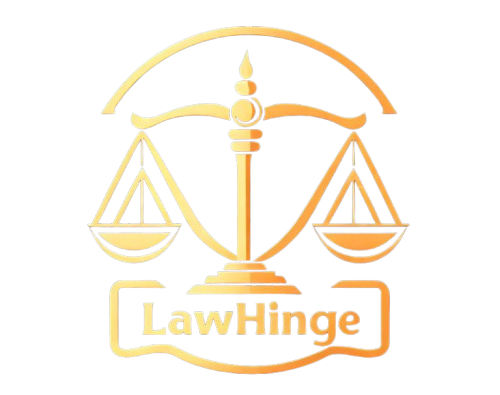10 Weird Laws from Around the World
“Laws are designed to maintain order and safety, yet some seem to defy common sense and veer into the realm of the bizarre. From banning chewing gum to regulating the afterlife, here’s a closer look at 10 Weird Laws from Around the World, showcasing some of the world’s strangest regulations.”
Chewing Gum Ban in Singapore
Singapore is renowned for its cleanliness and order, but did you know that the sale of chewing gum is banned in the country? Introduced in 1992, this law aims to prevent the mess from chewed gum being stuck in public places and on public transport. There are exceptions for therapeutic gums, which can be purchased from a doctor or pharmacist, showing how health can override civic cleanliness.
[Source: www.singaporestatutes.gov.sg/chewing_gum_ban]
No Reincarnation Without Government Permission in China
Perhaps one of the most unusual assertions of government control over personal faith and practices is found in China. Tibetan monks, including the Dalai Lama, are forbidden from reincarnating without state approval, according to a law passed in 2007. This law serves as a way to control the selection of Tibetan religious figures and limit the influence of the exiled Dalai Lama.
[Source: www.chinesegovernmentpolicies.gov.cn/reincarnation]
No High Heels at Ancient Greek Sites
In an effort to preserve its ancient monuments, Greece has banned visitors from wearing high heels at such sites. The law, implemented in 2009, aims to prevent scratches and other damage to old stonework, which is vulnerable to pressure and wear from modern footwear. This regulation reflects the country’s dedication to preserving its historical heritage for future generations.
[Source: www.greekheritageprotection.gr/highheelban]
Ban on Public Displays of Affection in the UAE
The United Arab Emirates enforces strict decency laws, reflecting its cultural emphasis on modesty. Public displays of affection, such as kissing or hugging, are considered offensive and can lead to fines or detention, particularly for tourists who may be unaware of these norms. This law underscores the cultural differences regarding personal behavior in public.
[Source: www.uaeculturallaws.ae/public_display_ban]
Denmark’s Approved Baby Names
Choosing a baby name in Denmark comes with a unique set of rules. Parents must select from a pre-approved list of about 7,000 names that conform to guidelines concerning gender, spelling, and tradition. If a desired name is not on the list, parents must seek approval from the local church and the Ministry of Ecclesiastical Affairs, ensuring that all names maintain certain standards of appropriateness.
[Source: www.danishnameauthority.dk/approved_names]
Prohibition of Driving Dirty Cars in Russia
In Russia, particularly in cities like Chelyabinsk, driving a vehicle that is deemed too dirty can result in a fine. This law aims to ensure that license plates are always visible and that the overall cleanliness of the community is maintained. It reflects broader concerns about order and public appearance in the urban environment.
[Source: www.russiantrafficlaws.ru/dirty_car_ban]
No Toilet Flushing After 10 PM in Switzerland
In certain Swiss apartment complexes, there’s a ban on flushing toilets after 10 PM in the case that it causes noise disturbance to neighbors. This law is part of a wider Swiss emphasis on consideration for others and maintaining a peaceful living environment, showing the country’s commitment to communal harmony and respect for privacy.
[Source: www.swissrentalregulations.ch/quiet_hours]
Legal Nude Hiking in Switzerland
Contrasting with its strict nighttime toilet flushing rule, Switzerland allows nude hiking. This practice is seen as a return to nature and a personal freedom, legally protected unless it causes public disturbance. The acceptance of such activities speaks to the Swiss value of personal freedom balanced with communal respect.
[Source: www.swisspublicdecencylaws.gov/nude_hiking_legal]
Ban on Yellow Clothing in Malaysia
During certain periods of political unrest, Malaysia has implemented a ban on yellow clothing, which is associated with protest movements against the government. This law aims to stifle dissent and limit public demonstrations, reflecting the tension between government control and public expression in the region.
[Source: www.malaysianpublicorder.gov.my/yellow_clothing_ban]
Licensed Electricians Only for Changing Light Bulbs in Victoria, Australia
In Victoria, Australia, only licensed electricians are legally allowed to change a light bulb. This law, which might seem like an over-regulation, is actually intended to prevent electrical accidents and ensure safety in homes. It underscores the importance of professional involvement in household electrical tasks, no matter how small.
[Source: www.victorianbuildingsafety.au/lightbulb_regulation]
Conclusion
While these laws might seem odd or even humorous, they often have serious intentions behind them, reflecting the unique cultural, historical, and environmental priorities of each country. Before traveling, it’s wise to familiarize yourself with local laws to avoid any surprises or misunderstandings. These regulations not only help maintain social order but also reveal the diverse ways in which societies choose to govern themselves.

